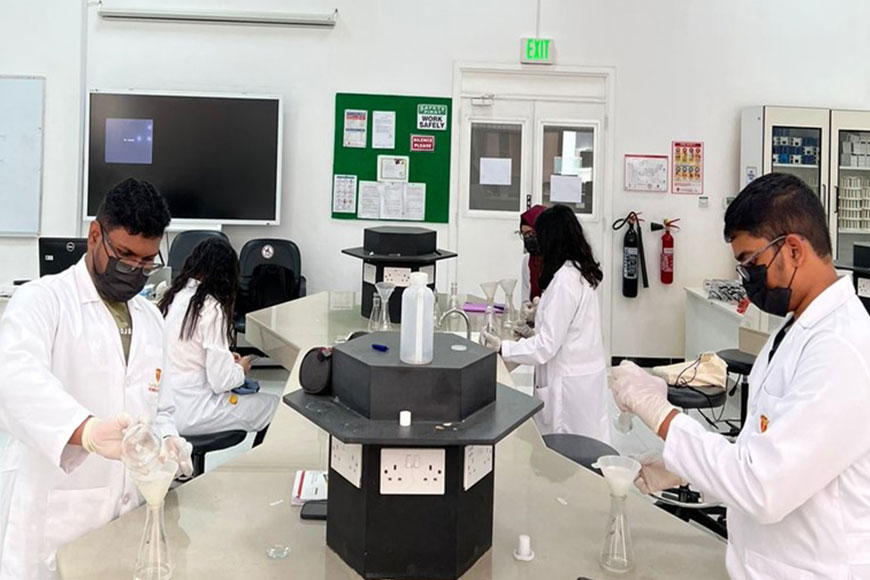Internship regulations in the UAE are guided by labor laws that protect both employers and interns, while ensuring that internships provide valuable educational experiences. Below is a detailed explanation of the key aspects of internship regulations in the UAE, including working hours, age restrictions, and job limitations:
What You Will Read:
Standard Working Hours for Interns
Interns in the UAE generally follow the same working hours as full-time employees, but there can be flexibility based on the internship type, company policies, and the nature of the work. Here’s what you need to know:
- Typical Working Hours: Interns are permitted to work up to 8 hours per day. This is similar to the standard workday for most employees in the UAE.
- For instance, if a company operates from 9:00 AM to 6:00 PM, the intern could be expected to follow these same hours. However, the exact working hours might vary from company to company.
- Shorter Hours: In some cases, the internship may have shorter working hours, particularly if it’s part of an academic program or part-time course.
- For example, some internships may require interns to work 4 to 6 hours per day to accommodate their academic schedule.
- Flexible Schedules: Some companies offer flexible working hours or remote internships where the intern can choose to work fewer hours per day, as long as the internship goals are met. This is more common in industries like tech or marketing.
Overtime Pay for Interns
Interns in the UAE are entitled to overtime pay if they exceed the standard working hours, but this typically depends on the specifics of the internship agreement. Here’s how it works:
- Exceeding Regular Hours: If an intern works more than 8 hours a day (or 48 hours a week), they are entitled to overtime compensation according to the UAE Labor Law.
- Overtime Pay: Typically, overtime is paid at a higher rate than the regular hourly wage, which can be 1.25 times the normal hourly rate for overtime during regular hours, and 1.5 times for overtime at night, weekends, or public holidays.
- Clarify in Agreement: Many internships do not require overtime, especially if the internship is structured to align with a student’s academic schedule. However, if overtime is expected, this should be clearly stated in the internship agreement to avoid misunderstandings.
Breaks for Interns
In the UAE, all employees, including interns, are entitled to regular breaks during the workday:
- Break Time: Interns must be given at least one hour break for every 5 consecutive hours of work. This is in line with the standard labor regulations in the UAE.
- Lunch Break: Often, this break is for lunch, but it can also be used for other personal matters. The break time can vary slightly based on company policies (some companies may offer shorter or longer breaks), but the law ensures that workers aren’t expected to work continuously for long hours without rest.
- Flexible Breaks: Depending on the internship, the intern might also be given more frequent shorter breaks (such as a 15-minute tea break) throughout the day, but this would depend on the employer’s policy.
Additional Notes on Working Hours for Interns
- Weekend and Public Holidays: If an intern works during weekends or on public holidays, they might be entitled to additional compensation or time off. This would also need to be mentioned in the internship contract.
- Part-Time vs Full-Time: Internships can be part-time (fewer hours) or full-time (8 hours per day). Some employers might have a combination, such as part-time internships that require fewer than 8 hours a day, especially if the intern is balancing other responsibilities (like studies).
- Non-Standard Hours: Certain industries, like hospitality, retail, or customer service, may require interns to work non-standard hours (e.g., evening shifts or weekends). This is worth clarifying in the internship agreement to avoid confusion.
The working hours for interns in the UAE are designed to balance professional development with well-being, ensuring that interns can gain valuable experience without being overworked. However, both interns and employers must understand the rights and expectations, particularly when it comes to working hours, overtime, and breaks, which should all be outlined clearly in the internship contract.

Age Limitations for Interns
Apprenticeship in the UAE are primarily targeted at individuals who are 18 years old or older, as this is the minimum age required for employment under UAE labor law. However, there are some additional considerations when it comes to younger individuals below the age of 18, and these should be carefully reviewed.
Minimum Age for Interns
- 18 Years and Older: As per the UAE Labor Law, the minimum age for employment is 18 years. This means that most internships are designed for individuals who are at least 18 years old, as they are considered adults under the law.
- At 18, individuals are legally permitted to enter into formal contracts, which is essential for internships since they are contractual agreements between the intern and the employer.
Interns Below 18 Years Old
While most internships are aimed at individuals who are 18 or older, there are circumstances under which minors (under 18) can participate in internships. However, the regulations are stricter for minors to ensure their safety and well-being:
- Special Provisions for Minors: Internships for individuals below 18 years old are subject to special regulations under UAE law. These regulations exist to protect minors from potentially harmful or dangerous work environments and ensure they are not exploited or overworked.
- Work Restrictions for Minors:
- Type of Work: Minors cannot be involved in work that is considered hazardous, dangerous, or harmful to their health or safety. This includes work that might require handling heavy machinery, chemicals, or dangerous substances, or work in environments that could be harmful (e.g., construction sites).
- For example, a minor might be allowed to work in an office or retail environment, but not in a factory or construction site where physical or safety risks are present.
- Working Hours: Minors are subject to stricter working hour limitations compared to adults. The law restricts the number of hours minors can work and ensures they are not overworked.
- In some cases, minors may be limited to working only a few hours a day or a certain number of days per week, ensuring that their work does not interfere with their schooling or well-being.
- Night Work Restrictions: Minors are prohibited from working during night shifts. The law protects minors by preventing them from working late at night, as it could interfere with their sleep patterns, health, or education.
- Most internships for minors would be restricted to daytime hours, typically within regular office hours.
- Parental or Guardian Consent: In many cases, minors must provide parental or guardian consent before taking up an internship. This ensures that the parents or legal guardians are aware of and approve the terms and conditions of the internship.
- Type of Work: Minors cannot be involved in work that is considered hazardous, dangerous, or harmful to their health or safety. This includes work that might require handling heavy machinery, chemicals, or dangerous substances, or work in environments that could be harmful (e.g., construction sites).
Conditions for Internships Involving Minors (Under 18)
If a minor is to undertake an internship, the employer must ensure that the internship complies with the following:
- Nature of Work: The work must be non-hazardous and suitable for the minor’s age and maturity level. The employer must ensure that the work environment is safe and conducive to learning rather than exploitation.
- Educational Alignment: The internship should align with the minor’s educational or vocational studies, ensuring it serves an educational purpose and is not purely for commercial gain. Internships for minors are often designed to give them exposure to a specific career path or industry, helping them gain practical skills that complement their academic knowledge.
- Compliance with the Law: Employers must ensure that all applicable regulations regarding working hours, wages (if applicable), and conditions are fully met. Violating labor laws regarding minors can lead to legal consequences for the employer, including fines or suspension of operations.
Legal Framework
- UAE Federal Labor Law: The UAE Federal Labor Law (Law No. 33 of 2021) outlines the rules concerning the employment of minors and emphasizes the importance of protecting their rights and ensuring their safety in the workplace.
- Education and Vocational Training Laws: In some cases, minors may be permitted to undertake internships as part of a vocational training program or school requirement, which would generally have stricter guidelines to ensure that the primary focus remains on education and development, rather than on production or labor.
Practical Scenarios for Minors Under 18:
- High School or Vocational Program Internships: A high school student aged 16-17 might be able to participate in an internship, such as working in an office environment or assisting with clerical work, provided that it aligns with their educational program and the work is suitable for their age group.
- Summer Internships: Many companies offer summer internships for students who are 16 or older, providing a learning experience in areas like marketing, IT, design, or retail. However, these internships are often short-term and designed to be educational rather than commercially focused.
Employer Responsibilities for Minors:
- Health and Safety: Employers must ensure that the work environment is safe and that the intern has appropriate supervision and guidance.
- Supervision: Since minors are considered more vulnerable in the workplace, they typically require more direct supervision to ensure they are not exposed to risks or exploitation.
- Workplace Policies: Employers may need to ensure that any workplace policies are adapted to suit the specific needs of a minor, particularly in terms of breaks, work hours, and the overall workload.
In the UAE, internships are typically open to individuals who are 18 years or older, as this is the minimum age for employment. However, minors (under 18) can also participate in internships under special provisions that protect their safety, well-being, and education. These provisions include restrictions on the type of work they can do, the number of hours they can work, and the environments in which they can work. Employers must adhere to these rules to ensure that internships for minors are both safe and educational.

Limitations on the Type of Jobs Interns Can Do
Internships in the UAE are primarily designed to offer educational experiences that help interns develop professional skills and knowledge. As such, the roles and responsibilities that interns are allowed to undertake are subject to certain limitations to ensure their safety, well-being, and alignment with their academic or professional development goals.
Nature of Work:
Interns are expected to engage in learning-based tasks that contribute to their education or skill development, not to replace regular employees. The nature of the tasks they perform must primarily focus on training and professional growth, rather than fulfilling the operational needs of the company in a way that could exploit them.
- Learning-Focused Roles: Interns should primarily participate in projects, research, or support tasks that help them gain a deeper understanding of the industry or field they are studying. Examples might include:
- Conducting market research
- Assisting with administrative tasks (e.g., data entry, documentation)
- Observing meetings or professional processes
- Participating in training sessions or workshops
- Shadowing experienced employees to understand business operations
- Not a Replacement for Employees: Internships are not intended to replace regular employees or fill in gaps that might otherwise be staffed by permanent workers. Interns should not be tasked with responsibilities that involve routine, repetitive work or day-to-day operational duties that are typically carried out by full-time employees.
Safety and High-Risk Work Restrictions:
Interns are not allowed to engage in jobs that involve hazardous or physically demanding tasks, especially if these jobs pose a risk to their health or safety. The safety of interns is a primary concern, and they should only work in environments that are safe and appropriate for their age and experience level.
- High-Risk Work: Jobs that involve dangerous machinery, equipment, or hazardous materials (such as working in a factory, construction site, or industrial setting) are typically off-limits for interns, unless special provisions are in place. Even in such cases, the following conditions must be met:
- Proper Training: Interns must receive comprehensive safety training specific to the tasks they are expected to perform.
- Supervision: Interns must be closely supervised by experienced professionals who can ensure they are following safety procedures.
- Safety Gear: If the internship involves working in environments where safety risks are present, interns must be provided with the appropriate protective equipment and gear (such as helmets, gloves, or goggles).
- Workplace Hazards: Interns should not be exposed to environments that may have inherent health risks such as extreme temperatures, exposure to chemicals, or physically demanding labor (e.g., lifting heavy loads or working with hazardous materials like chemicals or construction materials).
Part-Time vs Full-Time Internships:
Internships can be either part-time or full-time, depending on the nature of the internship agreement and the intern’s availability, but there are specific considerations regarding which types of jobs are suitable for each.
- Part-Time Internships: Many internships, especially those for students, are part-time. This typically means the intern works fewer hours (often 20-30 hours per week) to balance the internship with their academic schedule. Part-time internships tend to focus on administrative, support, or learning-based roles, where the intern can gain exposure to the industry without overburdening themselves.
- Full-Time Internships: Full-time internships, where interns work 8 hours a day, 5 days a week, are often more demanding and are usually designed for students who are on break or who can commit to a full-time schedule. These internships might offer more hands-on experience and a deeper level of responsibility. However, even in full-time internships, the tasks should remain educational and aligned with the intern’s course of study.
Work Restrictions and Job Types:
While internships are designed to provide practical experience, they should not place interns in roles that could endanger their health or well-being. As a result, certain types of jobs are generally unsuitable for interns unless they have received proper training, and the employer is compliant with all relevant health and safety regulations.
- Jobs That May Be Inappropriate for Interns:
- Manual Labor: Jobs that require heavy lifting, working with dangerous machinery, or physically demanding tasks are not suitable for most interns, unless there are special safety provisions and training in place.
- Construction: Interns generally should not be placed on construction sites or in environments where they would be exposed to physical hazards unless the internship is specifically tailored to fields such as architecture or civil engineering and the employer has ensured all proper safety measures are met.
- Labor-Intensive Roles: Interns should not be tasked with labor-intensive roles that would put their health at risk, such as long hours of physical exertion or exposure to high-risk chemicals or substances.
Industry-Specific Limitations:
Some industries or sectors impose specific limitations on the type of work interns can undertake, particularly if the industry involves sensitive or high-risk environments. Here are some examples:
- Healthcare: In medical or healthcare internships, interns would generally not be involved in direct patient care unless they are training under supervision, such as in the case of medical students or those in nursing programs. Interns in hospitals may work with administrative tasks or assist medical professionals in non-critical roles.
- Engineering/Construction: In engineering or construction internships, interns may not be involved in tasks like operating heavy machinery, construction, or site management unless they are being trained as part of a supervised learning program with appropriate safety measures.
- Hospitality/Tourism: Interns in the hospitality sector might be involved in tasks such as guest services, event planning, or administrative work rather than direct operations like kitchen work or managing dangerous equipment.
Interns and Professional Certifications:
For certain roles that require specific certifications or qualifications, such as those in the financial services or engineering industries, interns may be limited to shadowing professionals or assisting with basic tasks unless they possess the necessary professional certifications.
Internships are designed to give interns a learning experience that aligns with their academic or professional goals. However, they are subject to job limitations that ensure interns are not exposed to unsafe working conditions, exploitative tasks, or responsibilities that are better suited for full-time employees. Interns should be assigned tasks that contribute to their development, with careful attention to their age, safety, and level of expertise. Employers must comply with safety regulations and provide adequate supervision and training to ensure that the internship is both educational and safe.

Compensation
While internships in the UAE can be unpaid, many companies offer stipends or other forms of compensation, such as transportation or meals. Interns should clarify the compensation details in the internship agreement before starting.
- Minimum Wage: The UAE does not set a minimum wage for interns. However, it is common for many employers to provide some form of financial support, particularly in competitive industries such as engineering, finance, or information technology.
- Unpaid Internships: Unpaid internships are still legal in the UAE, but the internship must still be aligned with educational goals and provide learning opportunities.
Internship Agreements
It is important to have a clear and formal internship agreement between the intern and the employer, which outlines the terms and conditions of the internship. This should include:
- Duration of the internship
- Working hours
- Tasks and responsibilities
- Compensation (if any)
- Expected learning outcomes
An agreement ensures that both parties understand the roles, rights, and obligations. It also protects interns in terms of labor rights and compensation.
Labor Rights and Protections
Interns in the UAE, although not full employees, are still entitled to certain protections under the UAE Labor Law. These include:
- Protection from exploitation.
- Right to safe and healthy working conditions.
- Provision of breaks during long working hours.
- Right to a formal written agreement that specifies terms and conditions.
Post-Internship Employment
Training program in the UAE does not automatically lead to full-time employment. However, it is common for employers to consider interns for full-time roles if they perform well during their internship period.



